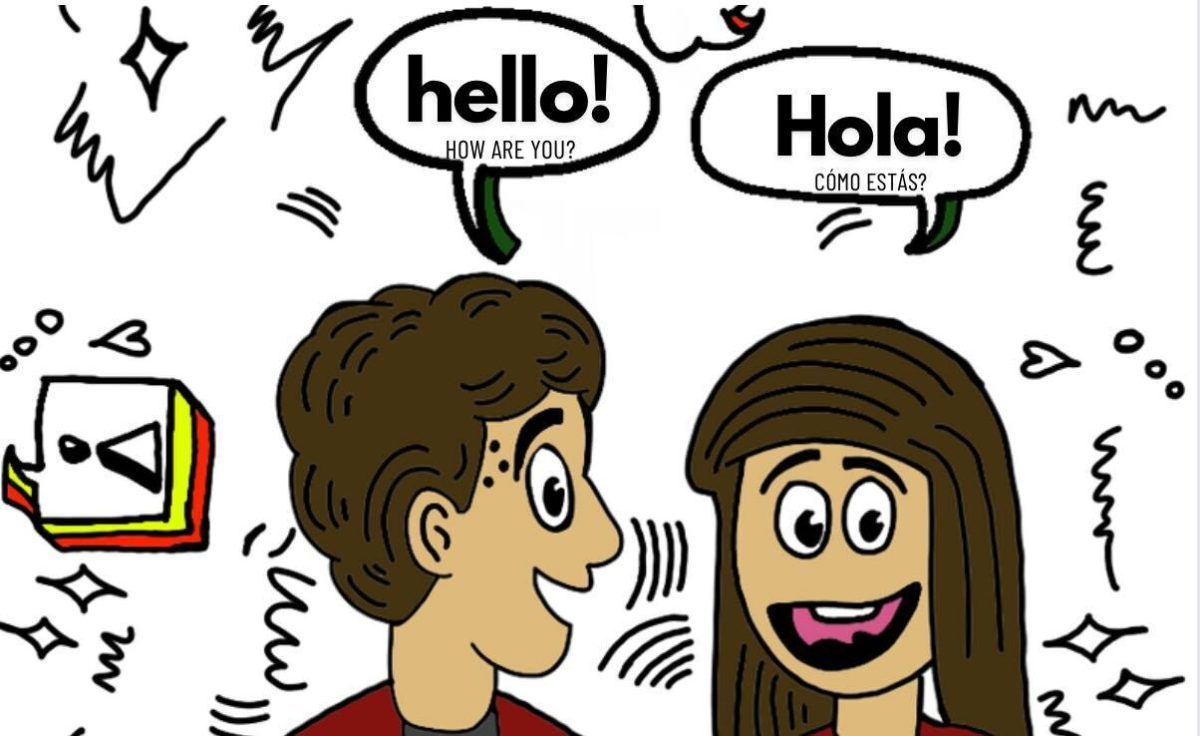As I strolled through Mississippi State University’s recent rendition of the annual International Fiesta, I marveled at all the unique cultures that blended together in one place. Mississippi State is becoming increasingly international in its student demographic, and that comes with a unique shift to the culture students create on campus.
Culture affects many aspects of the way a person lives, such as art, music and food. However, one part stands above the rest: language. It affects the way we communicate with the world around us and express our feelings. The way we speak gives us the power to bond and inspire those around us.
This means it is beneficial to be able to speak with as many people as possible, even if that involved speaking another language.
According to NationsOnline, English is the most spoken language — native and non-native — around the world today. In the United States, most people learn English as their first language.
In a community where finding a non-English speaker would be like trying to find a needle in a haystack, what is the point of speaking a different language? I argue the mental and cultural maturity gained from learning a new language makes the time and effort worth it.
The act of language-learning challenges the brain in multiple ways, increasing different parts of intelligence. There are often similarities between languages based on word origins, but studying a new vocabulary usually comes down to repetition and memorization.
On the other hand, learning to put sentences together when speaking in the structure of a new language is a bit like a jigsaw puzzle. The problem solving and control associated with fitting those puzzle pieces into conversation can improve mental cognition in everyday life.
Having learned Spanish for seven years now, I have been able to improve my speaking and grammar skills in both Spanish and English since I began my language journey.
In today’s world, there is an increasing amount of international collaboration. Proficiency in a second language can set you apart in the job market and open up leadership opportunities in many different fields.
According to Amie Russell, the undergraduate coordinator for the Department of Classical & Modern Languages and Literatures (CMLL), the business, governmental, engineering and medical sectors are increasingly seeking bilingual employees.
The world of music is also becoming increasingly international. Latin and K-pop have skyrocketed in popularity in the 2020s, and understanding the meaning behind songs in these genres can create a larger variety in music taste.
Selfishly, I would love to spread my love of Bad Bunny’s “Un Verano Sin Ti” to the entire world around me.
Despite the common myth that language learning can only be done in youth, adults do have the mental capacity to learn a new language.
In a 2021 study led by researchers at the University of Kansas, adult second-language learners were able to analyze and understand foreign grammatical structures, even as beginners. Whether adults have the free time to study and practice a language is a different story, but the mental foundation for doing so exists.
How can you get involved in learning a new language? Free apps like Duolingo and Babbel are great for understanding conversational phrases and picking up vocabulary, but they lack the nuances that fluent speakers of languages learn from experience.
There are also many student organizations on campus that allow students to learn more about international cultures. Students with heritages across the world contribute to these organizations and develop a global community at Mississippi State.
Alternatively, the CMLL department at Mississippi State offers courses to study seven modern languages and two classical languages. Many of these classes give the opportunity to video chat with native speakers through a platform like Conversifi or Lingua. The department also sponsors several study abroad programs that give real-world opportunities to practice a language of choice.
Most students are required to take at least one language class, but upper-level classes provide an opportunity to dive into the more interesting and unique parts of certain languages. It also gives the opportunity to practice with some of the hundreds of students with majors or minors in the CMLL department.
Learning a language is more than just books and words: it is a gateway to a new culture and new opportunities, personal and professional. There is a global conversation happening between eight billion people, and I think everyone should have more than one way of making their voice heard in that conversation.





